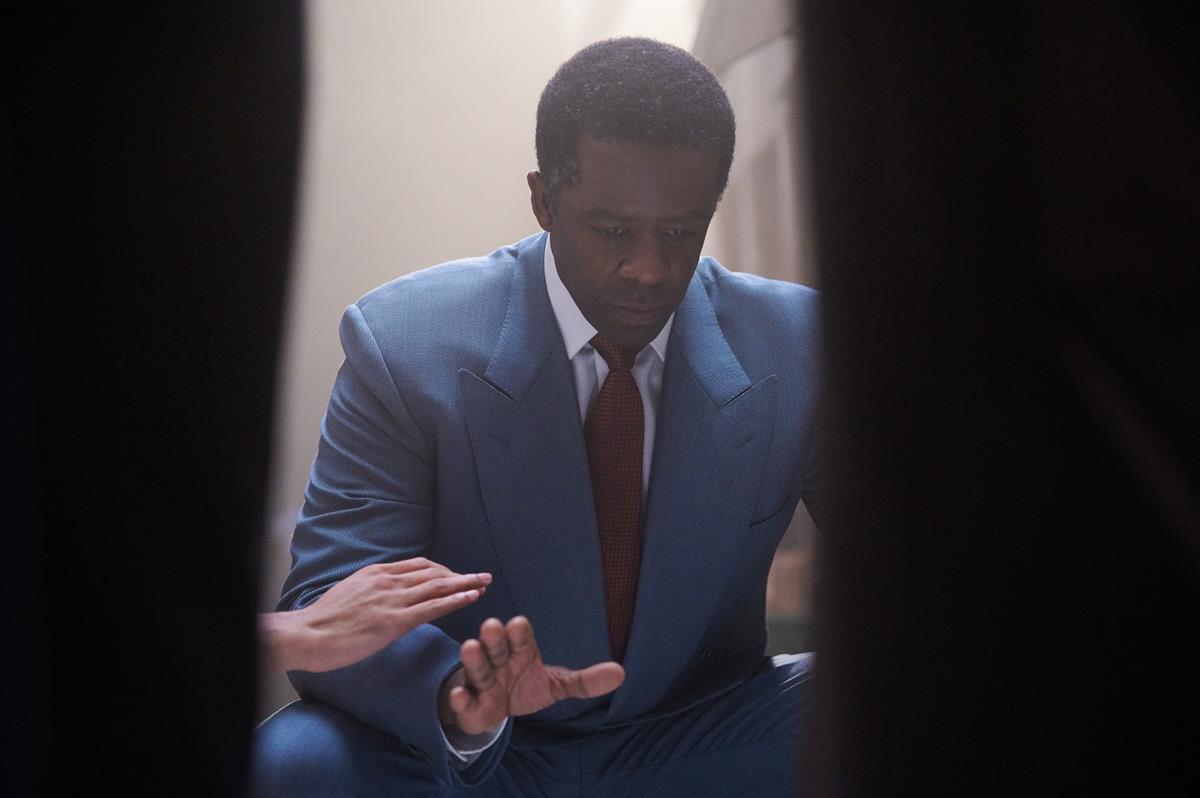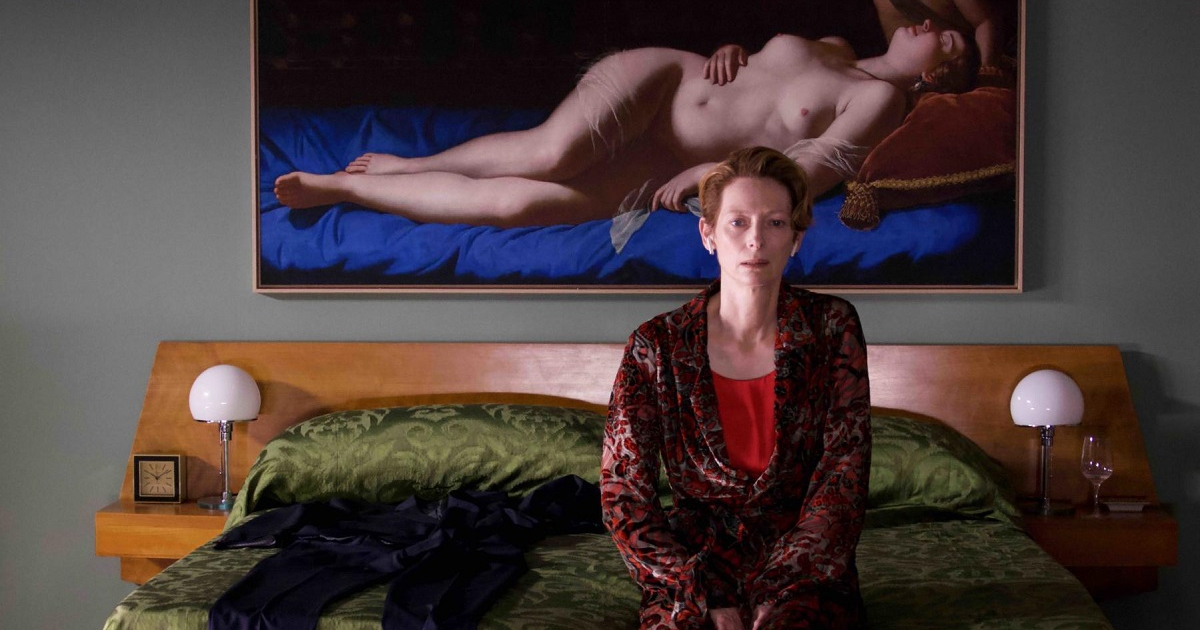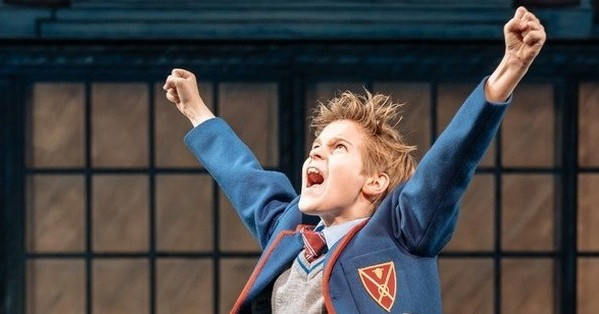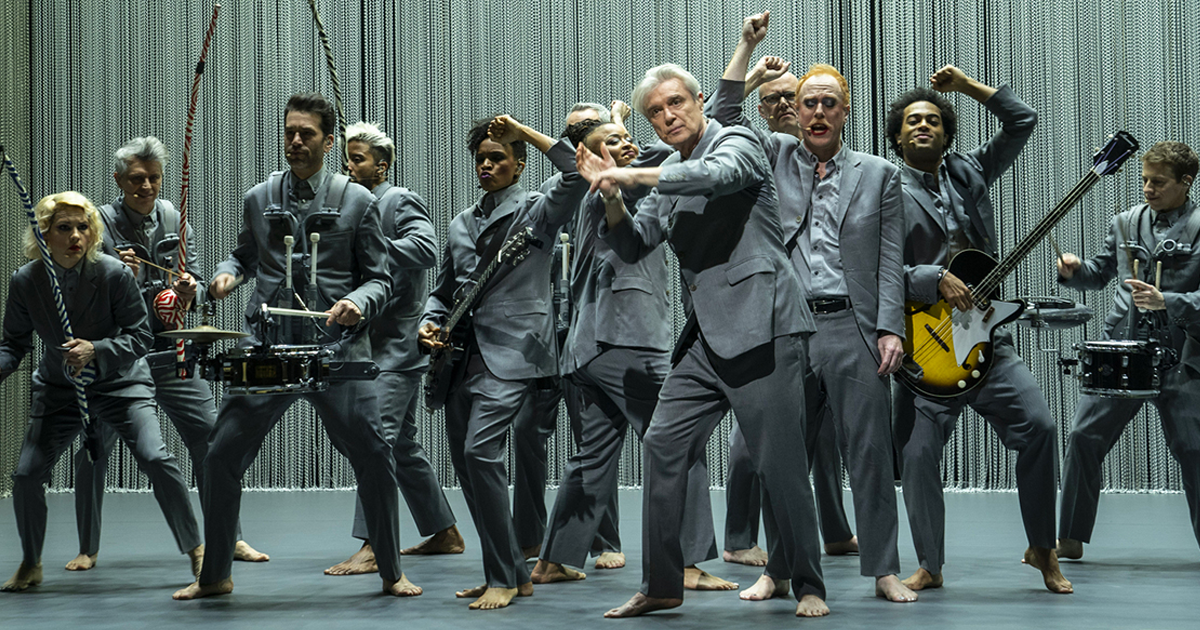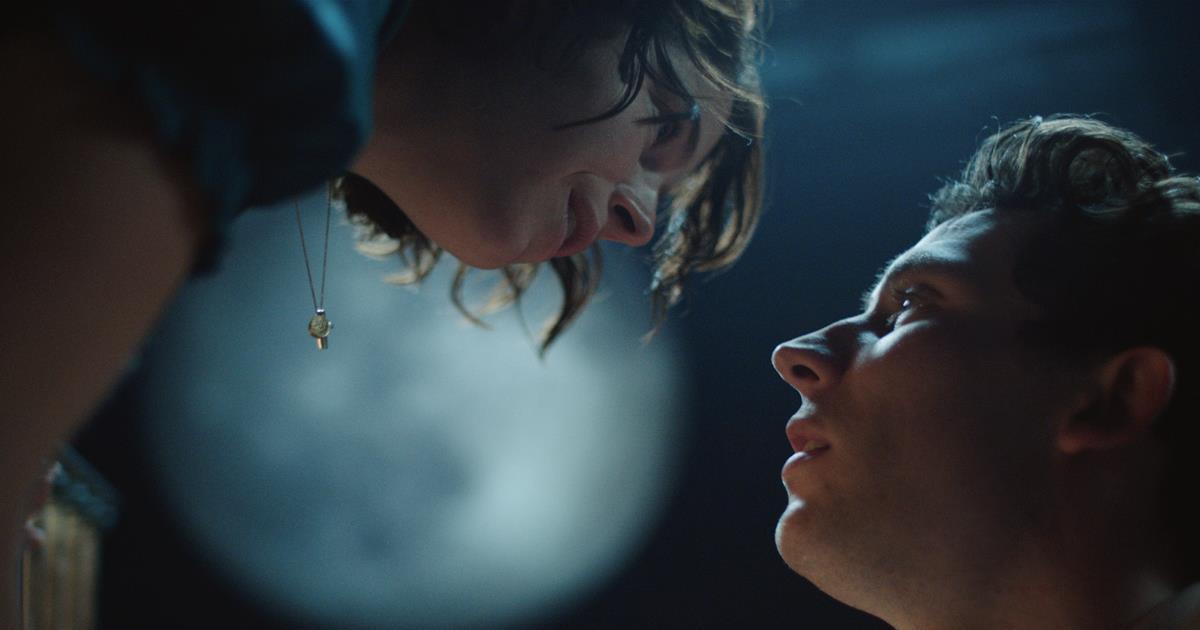
An original film for television from the UK’s National Theatre, Great Performances: Romeo & Juliet Premieres, aired in late April on PBS, pbs.org/gperf and the PBS video app.
This stylized film of Shakespeare’s masterpiece celebrates the theatrical imagination, moving from the stripped-down aesthetic of a rehearsal into a cinematic journey that embraces the architecture of the theater space and varied backstage spaces of the National’s Lyttelton Theater.
In this contemporary rendering of Shakespeare’s romantic tragedy, a company of actors in a shuttered theater bring to life the tale of two young lovers who strive to transcend a world of violence and hate.
Starring Josh O’Connor (The Crown, Masterpiece: The Durrells in Corfu) and Jessie Buckley (Fargo, Chernobyl) as Romeo and Juliet, the production is directed by Shakespeare Theatre Company Artistic Director Simon Godwin and adapted for television by Emily Burns.
The ensemble cast features Fisayo Akinade as Mercutio, Shubham Saraf as Benvolio, Deborah Findlay as the Nurse, David Judge as Tybalt, Alex Mugnaioni as Paris, Ellis Howard as Sampson, Tamsin Greig as Lady Capulet, Lucian Msamati as the Friar, Adrian Lester as the Prince, Lloyd Hutchinson as Lord Capulet, Colin Tierney as Lord Montague and Ella Dacres as Peta.
“Romeo & Juliet was due to be performed in the Olivier Theatre in summer 2020,” said director Simon Godwin. “Sets were underway and we were ready to go — and then the pandemic hit and the production was cancelled, like every other production in the world. And yet, through the vision and tenacity of David Sabel and Rufus Norris, we looked at coming together and trying to preserve something from that production.
“We know we can’t do a play and we know we can’t do an NT Live and record that play in front of a live audience. What about trying to do a film of the play?”
Producer David Sabel said, “it offered up in this instance an opportunity to try and innovate, to try and still produce a work of scale — a work that could reach great audiences celebrating the craft and talent of this building, and also try to push boundaries.”
Lady Capulet actress Tamsin Greig added, “Instead of just saying ‘that’s not possible’ they said ‘well what is possible?’ and came up with this beautiful hybrid idea of allowing an abandoned theater, which is full of memories and past performances, to actually become a character who makes this story come to life with this group of actors. So it’s almost like the building is allowing the story to be told.”
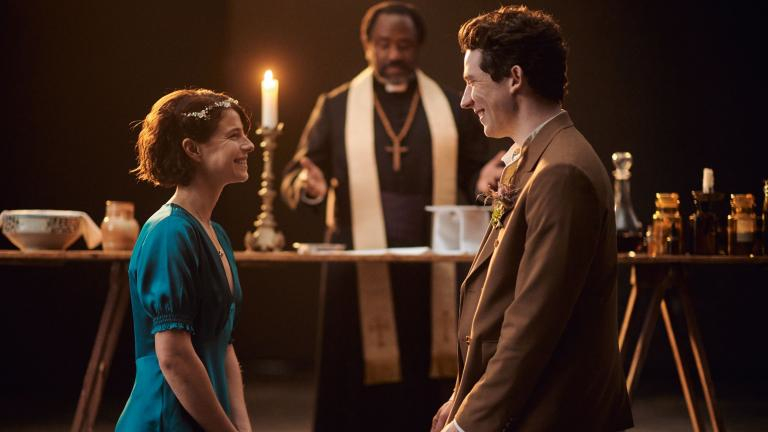
Film School Crash Course for a Lifetime Theater Director
“I was blessed with having a four-week rehearsal period,” continued Godwin, “which for a play is short but for a film is very long, I believe, as I had never done a film before! Those four weeks were a really golden opportunity for me to learn how to direct a film, having directed plays all my life.
“We had the cinematographer with us from day one,” said lead actress Jessie Buckley, “so it was unlike any other film or theatre project, as we were all sharing ideas and references all the time — films, pictures, painting and music. There were lots of things in the pot. We had film crew and theater crew and actors and dancers all working together at the same time.”
“The camera didn’t come at the end of the process, it came at the beginning — every morning,” said Godwin. “Our director of photography Tim Sidell would come in and essentially put me through film school. Really, I started the process knowing nothing — and sometimes, knowing nothing is liberating! You don’t know the rules to follow or to break, so you just let the story take over.
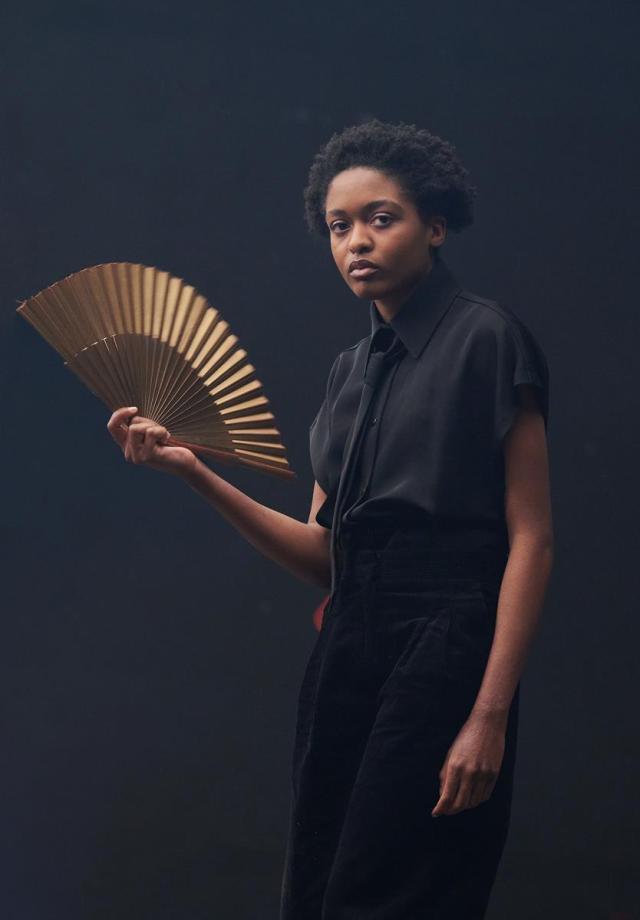
“And in a way the production mirrors the journey from theatre to film. We start on a rehearsal. We start on stage, with the actors wearing simple everyday clothes and with simple everyday props. And then, as the story gains momentum and the imagination of the actors takes over, we move from a very rough theatre context into a refined, cinematic landscape.”
“The adaptation is significantly cut down from the original text,” said Sabel. “so it’s fast-paced and distilled to the essentials of the story. And I hope that will work on screen, in a really wonderful way.”
“Shakespeare asks you for nothing,” said production designer Soutra Gilmour. “He’s quite happy to give you everything in the text, so you can choose to do Shakespeare with nothing at all. So, if you choose to do something, you need everything! It’s all or nothing writing. What we’ve tried to do is something in-between, where we start with nothing and go to all. It has definitely been an opportunity to experience a new way of working.”
“Theaters are all about community of course, they’re all about gatherings — the one thing we can’t do right now, being together in a group,” concluded Godwin. “So of course it’s eerie, of course it’s poignant, of course it’s filled with ghosts.
“And yet, like any sacred space, it’s also filled with promise. It’s filled with the extraordinary gestures, laughter, tears and passion that have filled the National Theatre space I’m sitting in now for decades and decades. So actually, working and filming in this space has been an enormous act of hope and celebration of what has come and what will come,” he said.
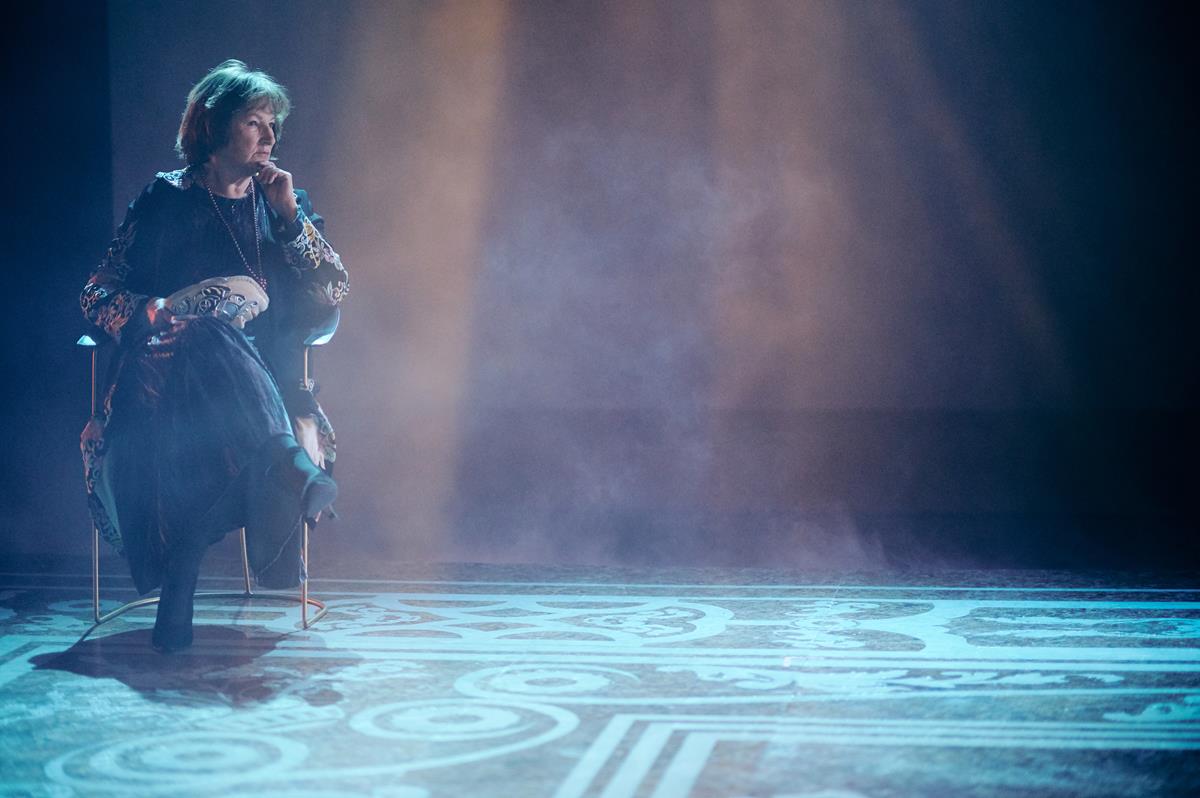
Arts, Education and Public Affairs Programming
“During the ongoing performance shutdown in London and New York, we’re delighted to participate in this compelling hybrid of theater and film that brings an exciting contemporary perspective to one of Shakespeare’s most iconic plays,” said Great Performances executive producer David Horn. “We’re thrilled to continue our partnership with the National Theatre.” The series broadcast the National Theatre’s production of One Man, Two Guvnors in November 2020 as part of its fourth annual Broadway’s Best lineup on PBS.
Throughout its more than 40-year history on PBS, Great Performances has provided a showcase of the best in all genres of the performing arts, serving as an enduring broadcaster of cultural programming. The series is available for streaming simultaneously on all station-branded PBS platforms, including pbs.org/gperf and the PBS Video app, which is available on iOS, Android, Roku, Apple TV, Amazon Fire TV, and Chromecast.
Great Performances is produced by THIRTEEN Productions LLC for WNET. John Walker is senior producer, Bill O’Donnell is series producer and David Horn is executive producer.
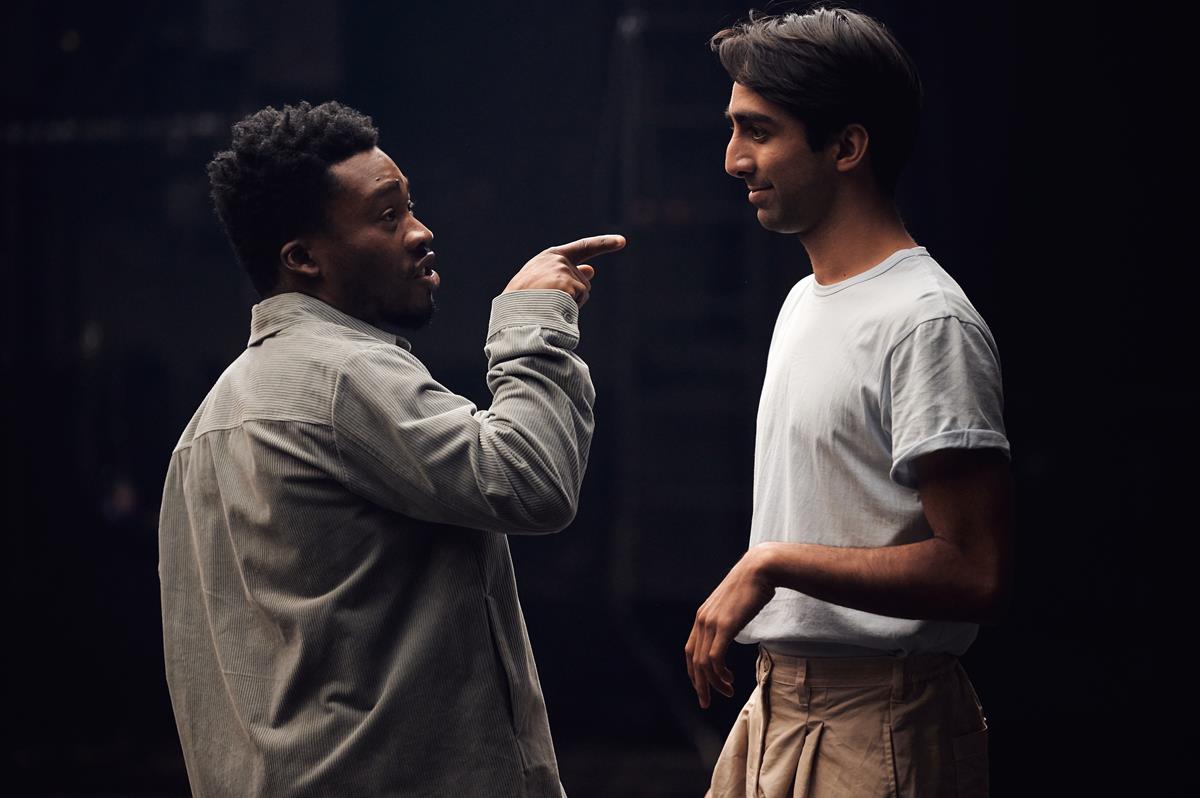
Great Performances: Romeo & Juliet is produced by the National Theatre in association with Sabel Productions and Cuba Pictures. Executive producers are Rufus Norris, Director and Joint Chief Executive of the National Theatre; Dixie Linder, Cuba Pictures; David Horn, Great Performances; Christine Schwarzman & Darren Johnston, No Guarantees; and Philip Edgar Jones, Sky Arts.
WNET is America’s flagship PBS station: parent company of New York’s THIRTEEN, WLIW21, WLIW-FM and operator of NJTV, the statewide public media network in New Jersey and its news division, NJ SPOTLIGHT NEWS.
Through its new ALL ARTS multi-platform initiative, its broadcast channels, three cable services (THIRTEEN PBSKids, Create and World) and online streaming sites, WNET brings quality arts, education and public affairs programming to more than five million viewers each month.
WNET produces and presents a wide range of PBS series, including Nature, Great Performances, American Masters, PBS NewsHour Weekend, and the nightly interview program Amanpour and Company. In addition, WNET produces numerous documentaries, children’s programs, and local news and cultural offerings, as well as multiplatform initiatives addressing poverty and climate.
